Related Research Articles

End of the Century is the fifth studio album by the American punk rock band Ramones, released on February 4, 1980, through Sire Records. The album was the band's first to be produced by Phil Spector, though he had offered the band his assistance earlier in their career. With Spector fully producing the album, it was the first release that excluded original member Tommy Ramone, who had left the band in 1978 but had produced their previous album Road to Ruin. Spector used more advanced standards of engineering, such as high-quality overdubbing and echo chambers. These painstaking methods caused conflict between the band and Spector since the Ramones were accustomed to a quicker recording process. Spector emphasized the production value as well, working with a budget of around $200,000, far exceeding their earlier album sessions.
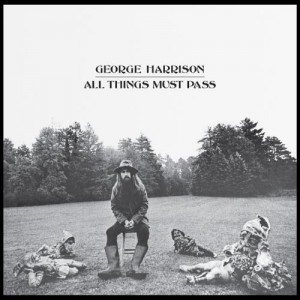
All Things Must Pass is the third studio album by English rock musician George Harrison. Released as a triple album in November 1970, it was Harrison's first solo work after the break-up of the Beatles in April that year. It includes the hit singles "My Sweet Lord" and "What Is Life", as well as songs such as "Isn't It a Pity" and the title track that had been overlooked for inclusion on releases by the Beatles. The album reflects the influence of Harrison's musical activities with artists such as Bob Dylan, the Band, Delaney & Bonnie and Friends and Billy Preston during 1968–70, and his growth as an artist beyond his supporting role to former bandmates John Lennon and Paul McCartney. All Things Must Pass introduced Harrison's signature slide guitar sound and the spiritual themes present throughout his subsequent solo work. The original vinyl release consisted of two LPs of songs and a third disc of informal jams titled Apple Jam. Several commentators interpret Barry Feinstein's album cover photo, showing Harrison surrounded by four garden gnomes, as a statement on his independence from the Beatles.
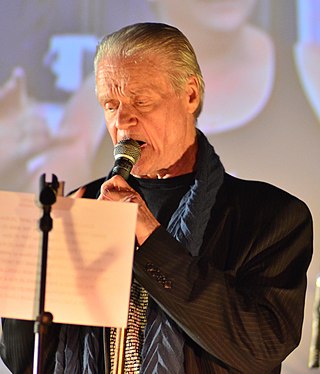
Kim Vincent Fowley was an American record producer, songwriter and musician who was behind a string of novelty and cult pop rock singles in the 1960s, and managed The Runaways in the 1970s. He has been described as "one of the most colorful characters in the annals of rock & roll", as well as "a shadowy cult figure well outside the margins of the mainstream".

The Wrecking Crew was a loose collective of Los Angeles–based session musicians whose services were employed for a great number of studio recordings in the 1960s and 1970s, including hundreds of top 40 hits. The musicians were not publicly recognized in their era, but were viewed with reverence by industry insiders. They are now considered one of the most successful and prolific session recording units in music history.
"Love You To" is a song by the English rock band the Beatles from their 1966 album Revolver. The song was written and sung by George Harrison and features Indian instrumentation such as sitar and tabla. Following Harrison's introduction of the sitar on "Norwegian Wood " in 1965, it was the first Beatles song to fully reflect the influence of Indian classical music. The recording was made with minimal participation from Harrison's bandmates; instead, he created the track with tabla player Anil Bhagwat and other Indian musicians from the Asian Music Circle in London.

The Teddy Bears were an American pop music group. They were record producer Phil Spector's first vocal group.

The Concert for Bangladesh is a live triple album credited to "George Harrison & Friends" and released on Apple Records in December 1971 in America and January 1972 in Britain. The album followed the two concerts of the same name, held on 1 August 1971 at New York's Madison Square Garden, featuring Harrison, Bob Dylan, Ravi Shankar, Ali Akbar Khan, Ringo Starr, Billy Preston, Leon Russell and Eric Clapton. The shows were a pioneering charity event, in aid of the homeless Bengali refugees of the Bangladesh Liberation War, and set the model for future multi-artist rock benefits such as Live Aid (1985) and the Concert for New York City (2001). The event brought Harrison and Starr together on a concert stage for the first time since 1966, when the Beatles retired from live performance, and represented Dylan's first major concert appearance in the US in five years.
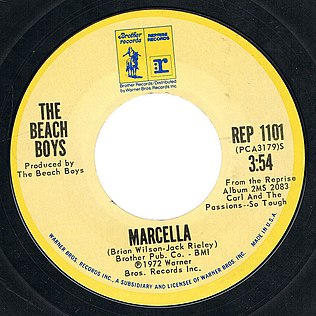
"Marcella" is a song by the American rock band the Beach Boys from their 1972 album Carl and the Passions – "So Tough". Written by Brian Wilson, Jack Rieley, and Tandyn Almer, the lyrics were inspired by Wilson's fixation with a local massage therapist. It is the last song to feature Bruce Johnston during his original tenure in the band.
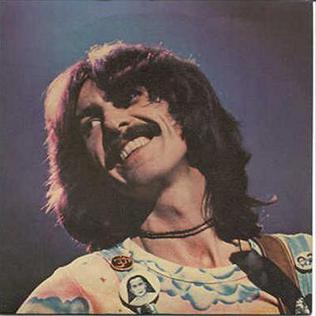
"You" is a song by English musician George Harrison, released as the opening track of his 1975 album Extra Texture . It was also the album's lead single, becoming a top 20 hit in America and reaching number 9 in Canada. A 45-second instrumental portion of the song, titled "A Bit More of You", appears on Extra Texture also, opening side two of the original LP format. Harrison wrote "You" in 1970 as a song for Ronnie Spector, formerly of the Ronettes, and wife of Harrison's All Things Must Pass co-producer Phil Spector. The composition reflects Harrison's admiration for 1960s American soul/R&B, particularly Motown.
Frazier Mohawk was an American record producer and sometime photographer, publicist, circus owner, and farmer.
Barney Hoskyns is a British music critic and editorial director of the online music journalism archive Rock's Backpages.
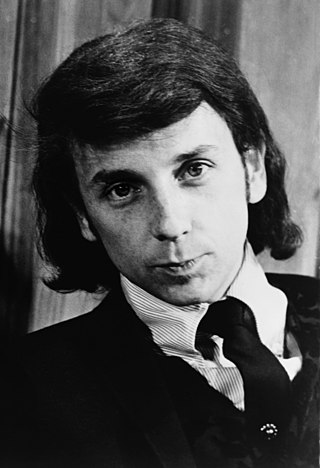
Harvey Phillip Spector was an American record producer and songwriter, best known for his innovative recording practices and entrepreneurship in the 1960s, followed decades later by his two trials and conviction for murder in the 2000s. Spector developed the Wall of Sound, a production style that is characterized for its diffusion of tone colors and dense orchestral sound, which he described as a "Wagnerian" approach to rock and roll. He is widely regarded as one of the most influential figures in pop music history and one of the most successful producers of the 1960s.

"Ringo, I Love You" is a rock song performed by American singer-actress Cher released under the pseudonym Bonnie Jo Mason, the name she used at the start of her career when based in Los Angeles. The song was released as a promotional single in 1964 during the height of Beatlemania. It was a tribute to the Beatles. The original vinyl is now a valuable rarity. In 1999, the song was covered by German electronic duo Stereo Total and released on their studio album My Melody.

"Deep Blue" is a song by English rock musician George Harrison that was released as the B-side to his 1971 charity single "Bangla Desh". Harrison wrote the song in 1970, midway through the recording sessions for All Things Must Pass, and recorded it in Los Angeles the following year while organising the Concert for Bangladesh. The composition was inspired by the deteriorating condition of his mother, Louise, before she succumbed to cancer in July 1970, and by Harrison's feelings of helplessness as he visited her in hospital in the north of England. Given the subject matter, "Deep Blue" also served to convey the suffering endured by the millions of refugees from war-torn Bangladesh in 1971, as sickness and disease became widespread among their makeshift camps in northern India.
"Ooh Baby (You Know That I Love You)" is a song by English musician George Harrison, released in 1975 on his album Extra Texture (Read All About It). Harrison wrote the composition as a tribute to American singer Smokey Robinson, whom he often identified as one of his favourite vocalists and songwriters. The song was intended as a companion piece to Robinson's 1965 hit with the Miracles, "Ooo Baby Baby", and its inclusion on Extra Texture contributed to that album's standing as Harrison's soul music album. His impersonation of Robinson's celebrated vocal style on the track, including portions sung in falsetto, contrasted with Harrison's hoarse, laryngitis-marred singing on his 1974 North American tour and the poorly received Dark Horse album.
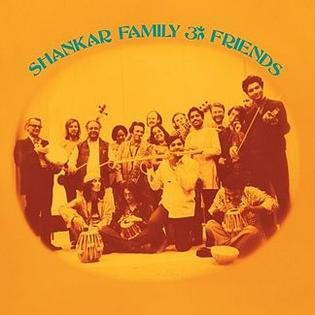
Shankar Family & Friends is an album by Indian musician Ravi Shankar, recorded primarily in Los Angeles during the spring of 1973, but not released until late 1974. It was produced by Shankar's friend George Harrison and one of the first releases on the ex-Beatle's Dark Horse label. Out of print for many years, and much sought after as a result, the album was remastered in 2010 and reissued as part of the Ravi Shankar–George Harrison box set Collaborations.

Edward Hoh was an American rock drummer who was active in the 1960s. Although primarily a studio session and touring drummer, Hoh exhibited a degree of originality and showmanship that set him apart and several of his contributions have been singled out for acknowledgment by music critics.
"This Could Be the Night" is a song recorded by the American band Modern Folk Quartet (MFQ) in late 1965 or early 1966. The lyrics describe a couple on the verge of conquering their inhibitions. Written in tribute to Beach Boys leader Brian Wilson, the song is one of three that are credited jointly to Harry Nilsson and Phil Spector, although Nilsson submitted that he was the sole writer on a 1966 copyright form.
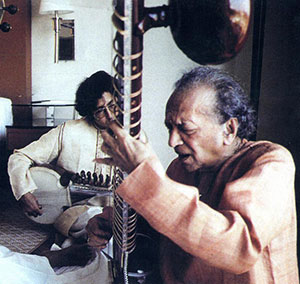
The Kinnara School of Music was a music school founded in Bombay, India, in 1962 by Indian classical musician Ravi Shankar. With his increased popularity and influence in the West, he opened a second branch of the school in Los Angeles in May 1967. Shankar's concept for Kinnara was to further the strict guru–shishya tradition of musical education that he had experienced under his teacher, Allauddin Khan, in the 1940s. The Bombay centre staged productions of orchestral works by Shankar, including Nava Rasa Ranga.
Guy Michael Webster ) was one of the early innovators of rock ‘n’ roll photography. His fifty-year career spanned the worlds not only of music but film and politics. While shooting album covers and magazine layouts for numerous groups – The Rolling Stones, The Mamas and the Papas, The Beach Boys, The Byrds, The Doors, Simon & Garfunkel among many others – he also photographed film legends like Rita Hayworth, Dean Martin, and Natalie Wood. As the primary celebrity photographer for dozens of magazines worldwide, Webster captured entertainers including Igor Stravinsky, Barbra Streisand, Jack Nicholson and American presidents Ronald Reagan and Bill Clinton. Webster's work was collected in the award-winning book, Big Shots: The Photography of Guy Webster, published by Insight Editions. His passion for photography was matched by his love of Italian motorcycles; his personal collection of bikes considered among the world's finest. He spent the later part of his life in Ojai, California, where he volunteered and taught photography at the Oak Grove School. He died there on February 5, 2019, as a result of complications arising from diabetes and liver cancer.
References
- 1 2 3 4 "Harvey Kubernik". Rock's Backpages . Retrieved October 12, 2018.
- 1 2 3 "Author Series with Harvey Kubernik". rockhall.com . Retrieved October 12, 2018.
- 1 2 3 4 5 "About Harvey Kubernik". Cave Hollywood. Retrieved October 12, 2018.
- ↑ Kubernik, Harvey (January 25, 2002). "George Harrison, Phil Spector and tandoori chicken". Goldmine . p. 16.
- ↑ Samuel L. Biedny
- ↑ "Harvey Kubernik". simonandschuster.com . Retrieved October 12, 2018.